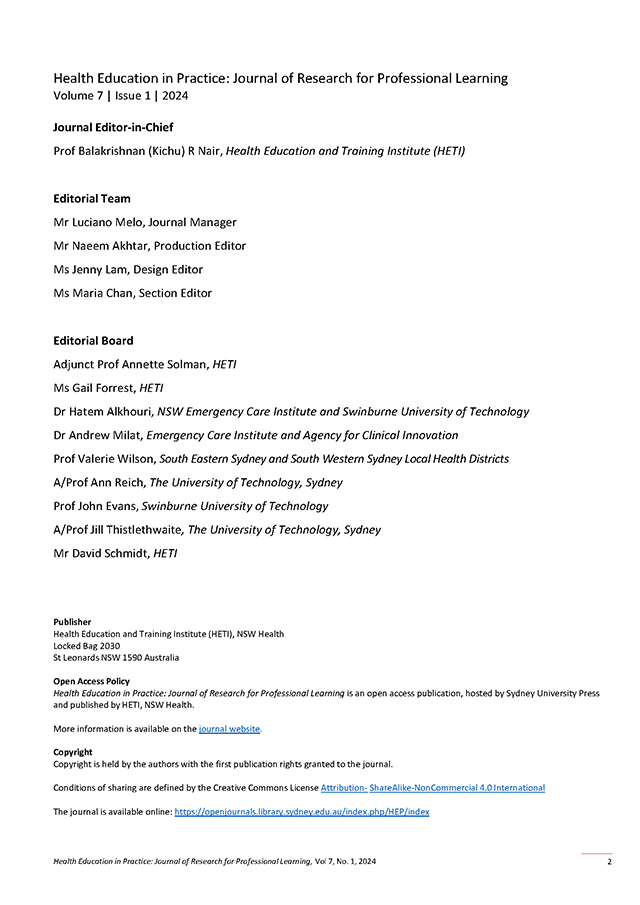GP registrars' deprescribing in older patients: a non-randomised controlled study.
GPs' deprescribing
DOI:
https://doi.org/10.33966/hepj.7.1.17351Abstract
Purpose: To evaluate the effect of a multi-component educational program aimed at improving general practitioner (GP) trainees’ (registrars') deprescribing in patients 65 years and over. The hypothesis was that an educational program would increase registrars' deprescribing of potentially inappropriate medicines (PIMs) in older patients, relative to a control group, six months post-education.
Design: This was a pragmatic, non-randomised, non-equivalent control group design nested within an ongoing cohort study of registrars' practice (the ReCEnT study). The program consisted of an online module, face-to-face sessions for registrars, webinars for their supervisors, and facilitation of the registrar–supervisor dyad, including case-based discussions of deprescribing in teaching meetings. The program was underpinned by the Behaviour Change Wheel framework and delivered to registrars of a single registrar educational/training organisation (other educational/training organisations served as controls). Primary outcome measures were deprescribing any medicines and deprescribing medicines categorised as PIMs. Secondary outcomes were deprescribing of medications taken for three months or more and dose reduction with a view to deprescribing (cessation).
Findings: Data from 779 education-receiving registrars and 438 control registrars were analysed. Intervention group registrars showed no significant increase in deprescribing of any medication compared to controls (interaction aOR 1.00 (95%CI 0.69, 1.46) or of PIMs (aOR 1.29 (95%CI 0.74, 2.24), or significant changes in secondary outcomes.
Research implications: Despite no differences in prescribing, in this analysis, six months post-intervention, aspects of the findings suggest extended observation and further evaluation may be indicated.
Practical implications: The continuation of education for registrars around deprescribing of PIMs is essential. Further investigation is required to assess the effectiveness and efficiency of the behaviour change approach adopted in this study.
Originality/value: The multi-component behaviour change theory-based approach is novel for this educational setting, and this is an initial step in evaluating the approach.
Limitations: The major limitation is that randomisation in the study design was not practicable.

